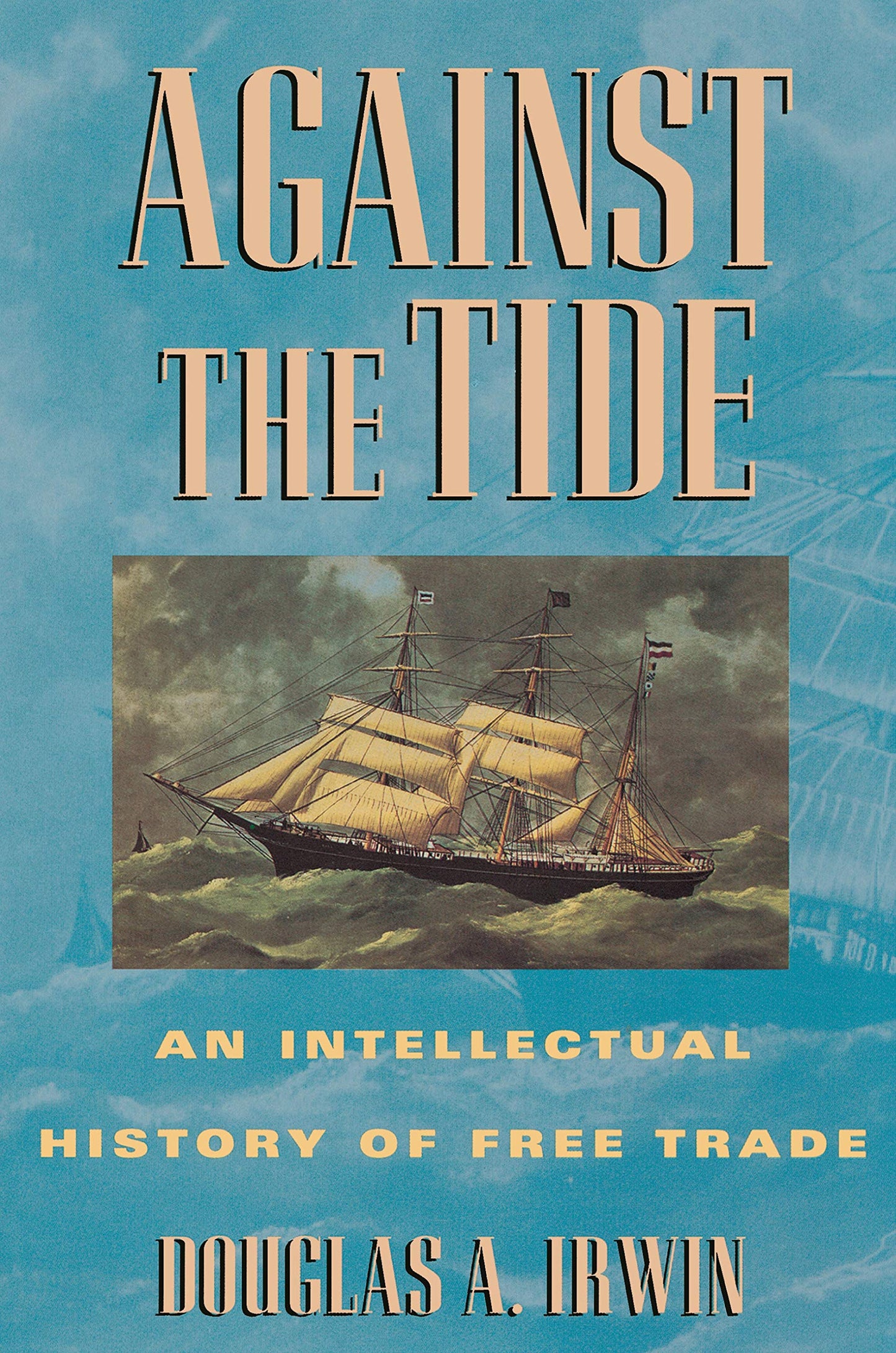Princeton University Press
Against the Tide: An Intellectual History of Free Trade
Regular price
$25.95 USD
Regular price
Sale price
$25.95 USD
Unit price
per
Shipping calculated at checkout.
Couldn't load pickup availability
Title: Against the Tide: An Intellectual History of Free Trade
Author: Douglas a Irwin
ISBN: 9780691011387
Publisher: Princeton University Press
Published: 1996
Binding: Hardcover
Language: English
Condition: Used: Near Fine
Excellent, unmarked copy with little wear and tight binding. We ship in recyclable American-made mailers. 100% money-back guarantee on all orders.
A 1673052
Publisher Description:
About two hundred years ago, largely as a result of Adam Smith's Wealth of Nations, free trade achieved an intellectual status unrivaled by any other doctrine in the field of economics. What accounts for the success of free trade against then prevailing mecantilist doctrines? And how well has free trade withstood various theoretical attacks that have challenged it since Adam Smith's time? In this readable intellectual history, Douglas Irwin explains how the idea of free trade has endured against the tide of the abundant criticisms that have been leveled against it from the ancient world and Adam Smith's day through the present. An accessible, nontechnical look at one of the most important concepts in the field of economics. Against the Tide will allow the reader to put the ever new guises of protectionist thinking into the context of the past and discover why the idea of free trade has so successfully prevailed over time. Irwin traces the origins of the free trade doctrine from premercantilist times up to Adam Smith and the classical economists. In lucid and careful terms he shows how Smith's compelling arguments in favor of free trade overthrew mercantilist views that domestic industries should be protected from import competition. Once a presumption about the economic benefits of free trade arose in the form of major arguments for protectionism, such as those relating to the terms of trade, infant industries, increasing returns, wage distortions, income distribution, unemployment, and strategic trade policy. Discussing the contentious historical controversies surrounding each of these arguments, Irwin reveals the serious analytical and practical weaknesses of each, and in the processshows why free trade remains among the most durable and robust propositions that economics has to offer for the conduct of economic policy.
Author: Douglas a Irwin
ISBN: 9780691011387
Publisher: Princeton University Press
Published: 1996
Binding: Hardcover
Language: English
Condition: Used: Near Fine
Excellent, unmarked copy with little wear and tight binding. We ship in recyclable American-made mailers. 100% money-back guarantee on all orders.
A 1673052
Publisher Description:
About two hundred years ago, largely as a result of Adam Smith's Wealth of Nations, free trade achieved an intellectual status unrivaled by any other doctrine in the field of economics. What accounts for the success of free trade against then prevailing mecantilist doctrines? And how well has free trade withstood various theoretical attacks that have challenged it since Adam Smith's time? In this readable intellectual history, Douglas Irwin explains how the idea of free trade has endured against the tide of the abundant criticisms that have been leveled against it from the ancient world and Adam Smith's day through the present. An accessible, nontechnical look at one of the most important concepts in the field of economics. Against the Tide will allow the reader to put the ever new guises of protectionist thinking into the context of the past and discover why the idea of free trade has so successfully prevailed over time. Irwin traces the origins of the free trade doctrine from premercantilist times up to Adam Smith and the classical economists. In lucid and careful terms he shows how Smith's compelling arguments in favor of free trade overthrew mercantilist views that domestic industries should be protected from import competition. Once a presumption about the economic benefits of free trade arose in the form of major arguments for protectionism, such as those relating to the terms of trade, infant industries, increasing returns, wage distortions, income distribution, unemployment, and strategic trade policy. Discussing the contentious historical controversies surrounding each of these arguments, Irwin reveals the serious analytical and practical weaknesses of each, and in the processshows why free trade remains among the most durable and robust propositions that economics has to offer for the conduct of economic policy.

